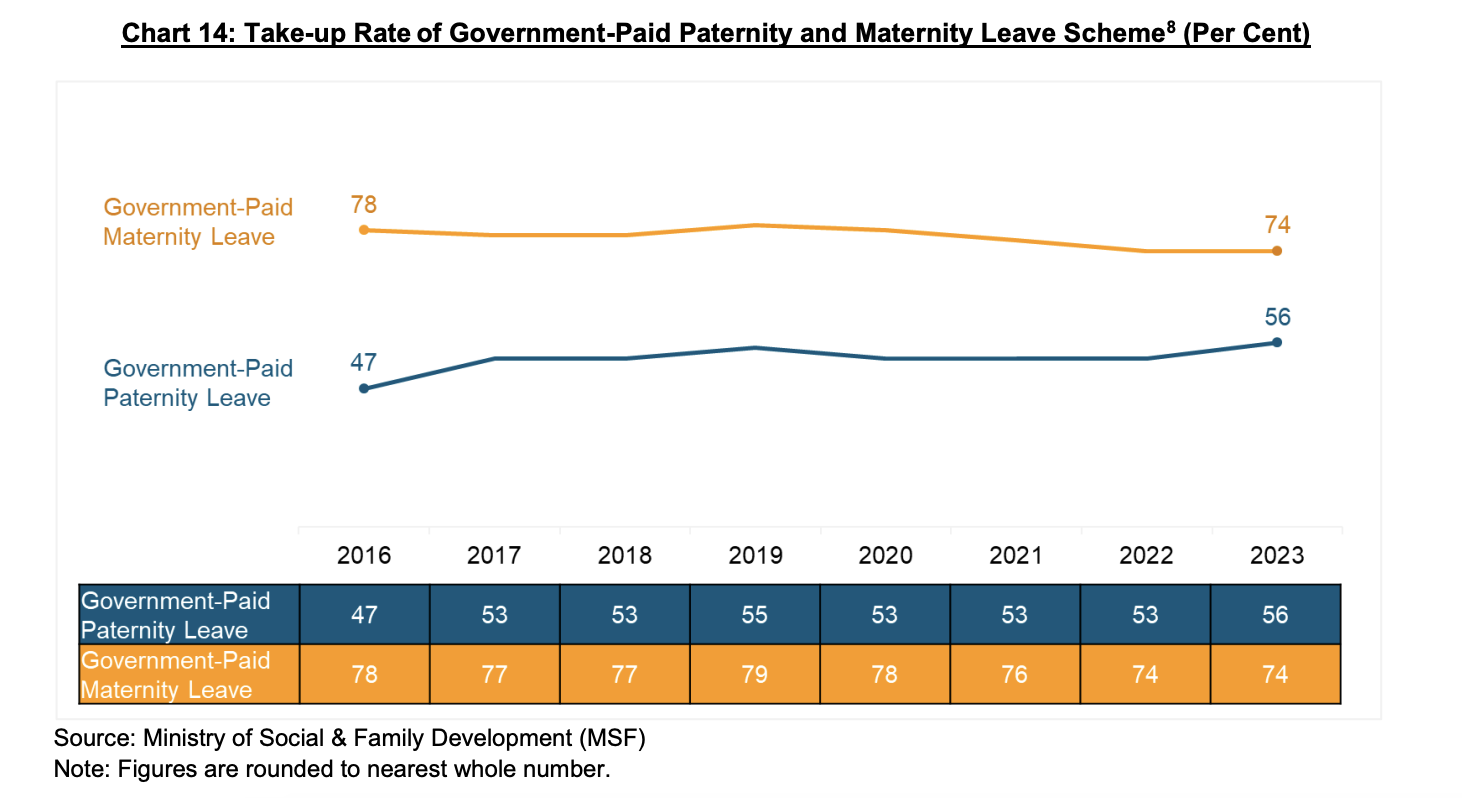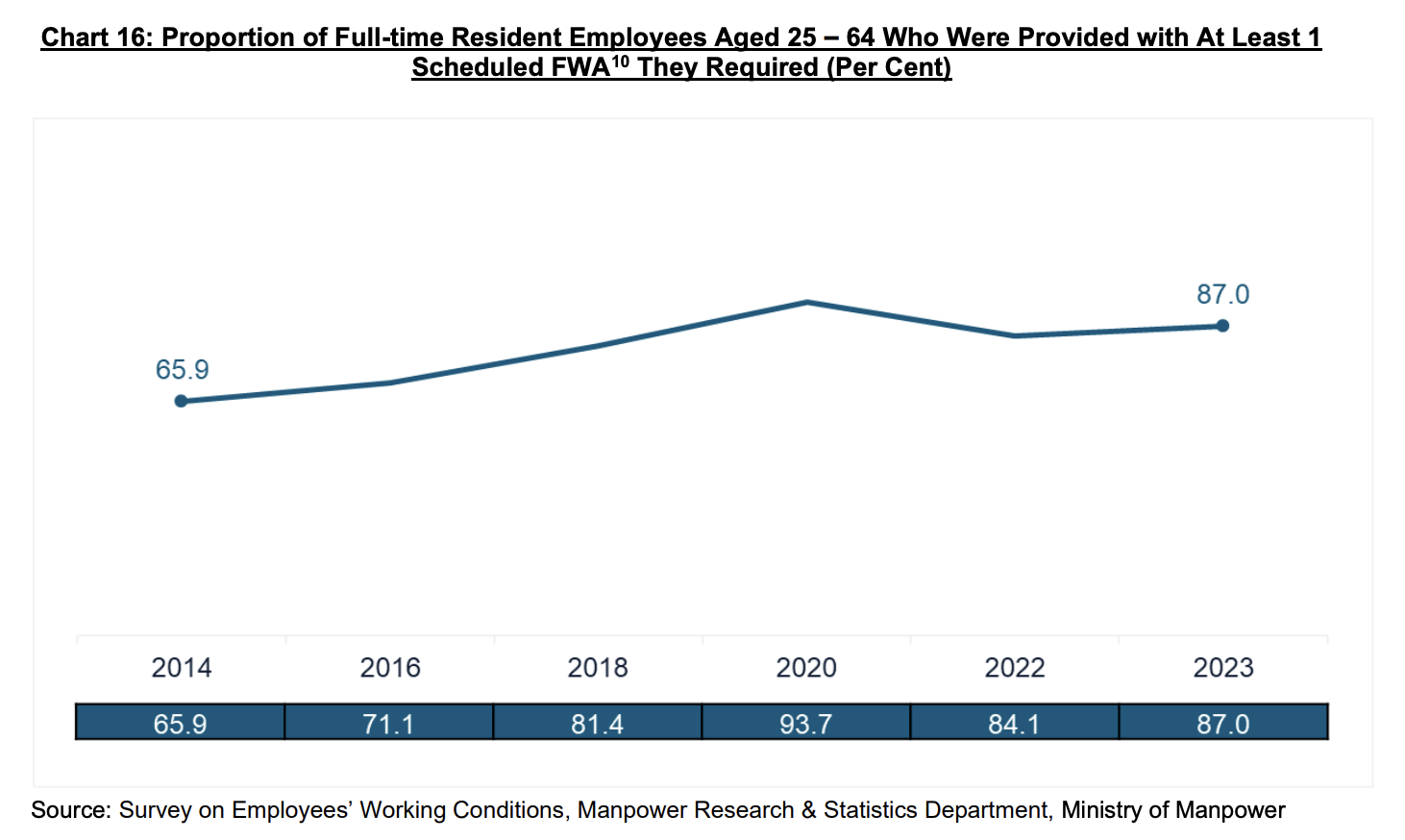
Government data also reveals flexible work access rebounds

More than half of fathers took government-paid paternity leave in 2023, according to new data from the Ministry of Social and Family Development (MSF).
The MSF's Family Trends Report 2025 showed that 56% of fathers took government-paid paternity leave in 2023, up from 53% in 2022.
The proportion of mothers who took government-paid maternity leave remained stable at 74% in 2023, similar to 2022, but slightly lower than the 76% in 2021.

The Singapore government has been taking steps to improve the uptake of parental leave, especially paternity leave, among employees.
The government mandated employers to offer four weeks of paternity leave starting this year.
It also launched a six-week parental leave scheme in April that can be taken by either fathers or mothers. This will be expanded to 10 weeks in April 2026.
"We encourage both mothers and fathers to use the parental leave provisions, including up to additional six weeks of paid shared parental leave, to bond with their children and share the parenthood journey together," the MSF said in a statement.
Meanwhile, the proportion of employees who had access to flexible work arrangements rebounded in 2023 after taking a slight dip post-pandemic.
According to the report, 87% of full-time resident employees were provided with at least one scheduled flexible work arrangement that they required in 2023.
Scheduled flexible work arrangements in Singapore may refer to part-time work, staggered hours, flexi-hours, scheduled teleworking, homeworking, job-sharing, and compressed work week.
The proportion of employees who had access to these arrangements went up from the previous 84.1% in 2022, but remains lower than the 93.7% in 2020 when companies adopted work-from-home arrangements because of the COVID-19 pandemic.

The Singapore government has mandated since December 2024 that employers must start considering formal requests for flexible work arrangements.
This means employers must establish processes that will allow and consider formal requests for flexible work, such as flexi-place, flexi-time, or flexi-load.
The government said employers may still reject flexible work requests, but they are encouraged to explore alternative options with employees.